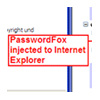
Piwik Update Infected with Backdoor Malware
Attackers infiltrated a webserver belonging to the open source Piwik website analytics project and injected backdoor malware into a zip file update on Monday. Users who downloaded the Piwik update 1.9.2 between 15:43 UTC to 23:59 UTC are urged to check piwik/core/Loader.php file for the following code string:













